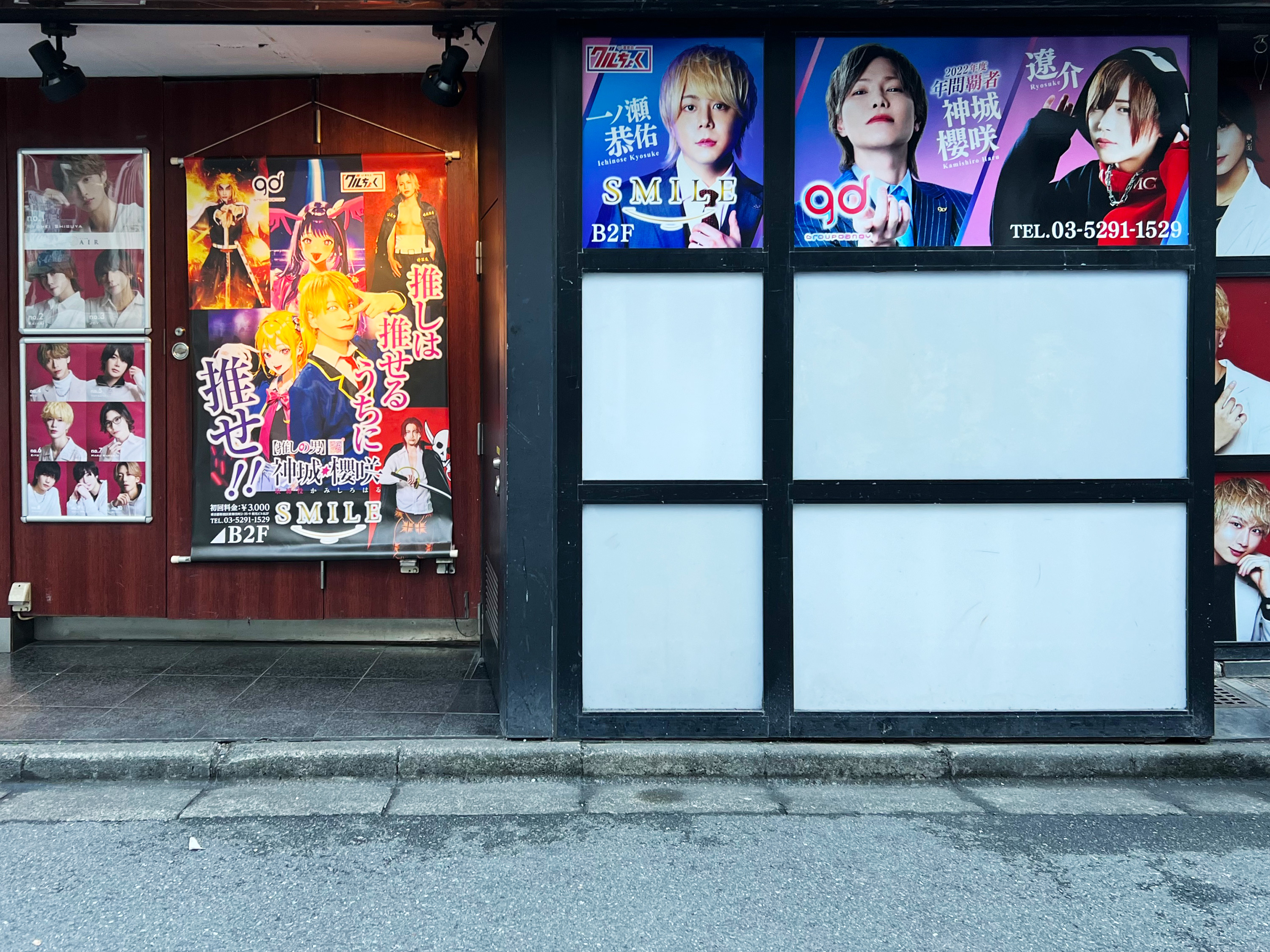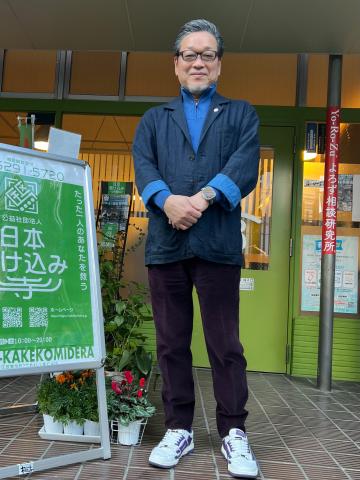Issue:
January 2024
Host clubs are forcing female customers into prostitution to pay off their debts, campaigners tell FCCJ event

Among the obligatory assignments for new foreign correspondents in Tokyo is a visit to a host club, where attractive young staff cater to the whims of clients while peddling quasi-romance and overpriced booze. The clubs, part of Japan’s mizushōbai “water trade” nightlife scene since the 1960s, are colorful and numerous and have even become a tourist stopover. But in case there was any doubt, the industry is blighted with grotesque exploitation.
Some of the nation’s 1,000 clubs are run by unscrupulous managers (themselves ex-hosts) who encourage star-struck female clients to run up large tabs. A growing number of women have been forced into sex work to settle their tabs, which can read reach millions of yen, said Hidemori Gen, the so-called “Samaritan of Kabukichō”, Tokyo’s most famous nightlife district.
“We’ve seen cases where people have spent ¥90 million (at these clubs),” Gen told a press conference at the FCCJ on December 18. Paying off these debts in some cases takes up to eight years.
Gen has long been a fixture of Kabukichō, operating a drop-in center for the area’s floating population of troubled souls. For years, he operated a voluntary association called Nihon Kakekomidera to provide free counselling to victims of domestic violence or enforced prostitution. More recently, he set up the Council of Fathers and Mothers to Protect Youth, which has an office in front of Okubo Park, a well-known hangout for sex workers. Arrests for prostitution in the district have tripled this year, according to police.

“We hear a lot of concerns from parents who say their daughters have been tricked by people who have exploited their romantic feelings. Many of these women - some are just 20 years old – have been psychologically or even physically coerced, said Yoshihide Tanaka, the council’s executive director. “They are victims of the clubs. The bosses who run them target women for their attractiveness and earning power. They say: ‘This girl can make money and we can sell her.’”
A key feature of the council’s work is that there is almost no consultation with the women themselves – it is usually with their parents, Tanaka said. And the problem is growing. In the five months since the organization was set up, it has received more than 200 queries and 70 face-to-face consultations from people from all over Japan.
“It’s exactly the same as a religious cult, the way the clubs manipulate and brainwash the women,” Gen said. “They use a manual to target women and give them their first visits free to rein them in.”
Hosts in their 20s and managers in their 30s and 40s have perfected their brainwashing techniques. They make empty promises of marriage and going into business together. “The girls are turned into puppets and hosts into pimps. Girls are broken mentally and physically,” Gen said. In some cases, the women are trafficked abroad to Australia, Laos and the Philippines to prostitute and pay off their debts, helped by the weak yen and the popularity of Japanese women.
In the vicious circle of psychological damage noted by other observers, such women have been known to blow their earnings back in the host clubs that began their journey into the sex trade, spending thousands of dollars on their favorite hosts. As they get older, if they don’t manage to escape the business, many end up working in soaplands – expensive bathhouses where women provide massages and sexual services.
In December, Gen’s group submitted a petition to the mayor of Shinjuku Ward demanding an ordinance targeting the neighborhood’s 300 host clubs. The ward met club managers, but Gen said he had been excluded. In the same month, however, a team of investigators raided over 170 clubs in Kabukicho to check claims that they were forcing clients into prostitution. The investigators found a number of violations, including failing to properly display prices of champagne and luxury drinks, and putting up menu displays in out-of-the-way places at 75% of the clubs, according to NHK.
Host-club managers have reportedly promised that they will scrap the customer-tab system next April, and ban customers who are under 20.
But it will take more than that to shut the scams down, Gen said. Criminal gangs - he says there are at least six operating within the 600-square-meter Kabukicho district – are adept at skirting the law. The clubs are on the back foot because of the recent media attention, but are again luring women in with free visits, he added.
“I have absolutely no expectations that Japan will solve this without foreign pressure,” he said, adding that he believed the ruling Liberal Democratic Party was blocking tougher legislation. “These places operate exactly like a cult. It took 40 years to find a solution to the problem of Johnny & Associates and the Unification Church. We just let things rest, and that caused huge damage. We are doing the same to the host clubs.”
David McNeill is professor of communications and English at University of the Sacred Heart in Tokyo, and co-chair of the FCCJ’s Professional Activities Committee. He was previously a correspondent for the Independent, the Economist and the Chronicle of Higher Education.

